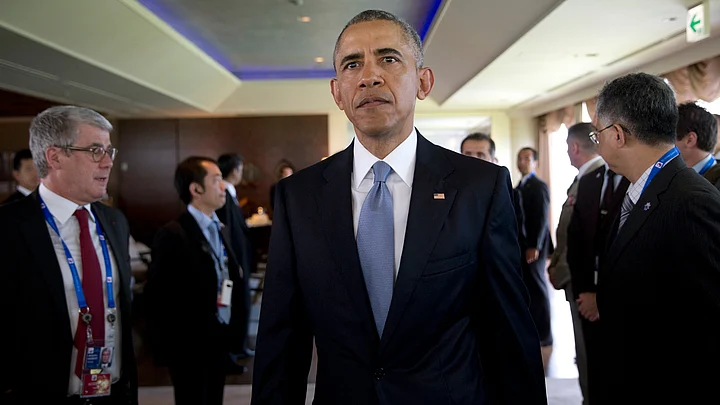Barack Obama on Friday became the first sitting US president to visit Hiroshima, site of the world’s first atomic bombing, a gesture Washington and Tokyo hope, will highlight their alliance and breathe life into stalled efforts to abolish nuclear arms.
Even before it occurs, though, the visit has stirred debate, with critics accusing both sides of having selective memories and pointing to paradoxes in policies relying on nuclear deterrence while calling for an end to atomic arms.
The two governments hope Obama’s tour of Hiroshima, where an atomic bomb killed thousands instantly on 6 August 1945, and some 140,000 by the year’s end, will highlight a new level of reconciliation and tighter ties between the former enemies.
Aides say Obama’s main goal in Hiroshima, where he will lay a wreath at a peace memorial, is to showcase his nuclear disarmament agenda, for which he won the 2009 Nobel Peace Prize.
Obama has said he will honour all who died in World War II but will not apologise for the bombing.
The city of Nagasaki was hit by a second nuclear bomb on 9 August 1945, and Japan surrendered six days later.
A majority of Americans see the bombings as having been necessary to end the war and save lives, although some historians question that view. Most Japanese believe they were unjustified.
I’m coming, first and foremost, to remember and honour the tens of millions of lives lost during the Second World II. Hiroshima reminds us that war, no matter the cause or countries involved, results in tremendous suffering and loss, especially for innocent civilians.Obama to Asahi newspaper
The White House debated whether the time was right for Obama to break a decades-old taboo on presidential visits to Hiroshima, especially in an election year.
But Obama’s aides defused most negative reaction from military veterans’ groups by insisting he would not second-guess the decision to drop the bombs.
I will not revisit the decision to use atomic weapons in Hiroshima and Nagasaki, but I will point out that Prime Minister Abe and I coming to Hiroshima together shows the world the possibility of reconciliation, that even former adversaries can become the strongest of allies.
Victims, Perpetrators
Atomic bomb survivors have said, an apology from Obama would be welcome but for many, the priority is ridding the world of nuclear arms, a goal that seems as elusive as ever.
Not all agree. “I want Obama to say ‘I’m sorry’. If he does, maybe my suffering will ease,” said Eiji Hattori, 73, a toddler at the time of the bombing who now has three types of cancer.
If Obama apologised, I could die and meet my parents in heaven in peace.Eiji Hattori, Victim of the bombing
Hattori told Reuters at the peace park, from which ordinary citizens were later ejected amid tight security ahead of the president’s visit.
World War II flying ace Dean “Diz” Laird, 95, who shot down Japanese fighters and dropped bombs on Tokyo, said he was pleased Obama was making the visit, but glad he wasn’t apologising.
It’s bad that so many people got killed in Hiroshima, but it was a necessity to end the war sooner.
Critics argue that by not apologising, Obama will allow Japan to stick to the narrative that paints it as a victim.
Abe’s government has affirmed past official apologies over the war but said future generations should not be burdened by the sins of their forebears.
China and South Korea, which suffered from Japan’s wartime aggression, often complain it has not atoned sufficiently.
It is worth focusing on Hiroshima, but it’s even more important that we should not forget Nanjing.Wang Yi, Chinese Foreign Minister
China says Japanese troops in 1937 killed 300,000 people in its then-capital of Nanjing. A postwar Allied tribunal put the death toll at 142,000, but some conservative Japanese politicians and scholars deny a massacre took place at all.
The victims deserve sympathy, but the perpetrators can never escape their responsibility.Wang Yi, Chinese Foreign Minister
(The author is a reporter with Reuters.)
